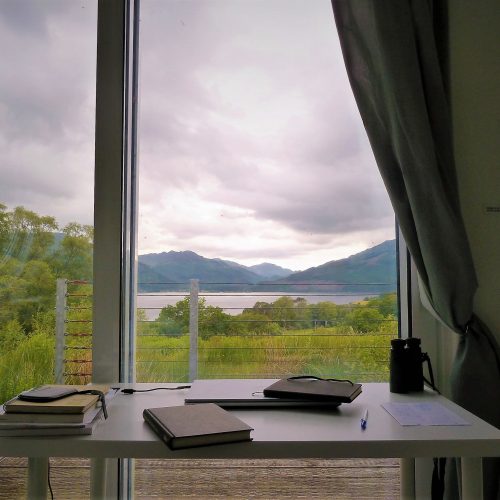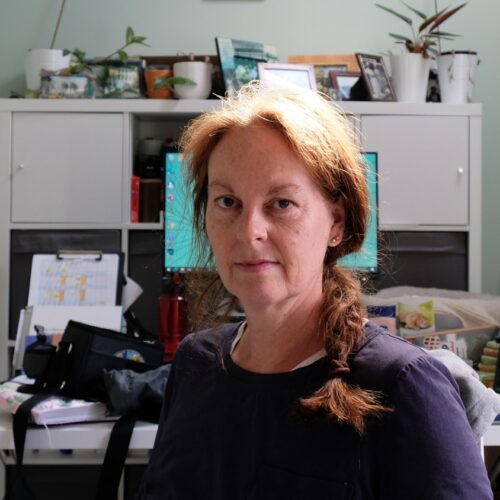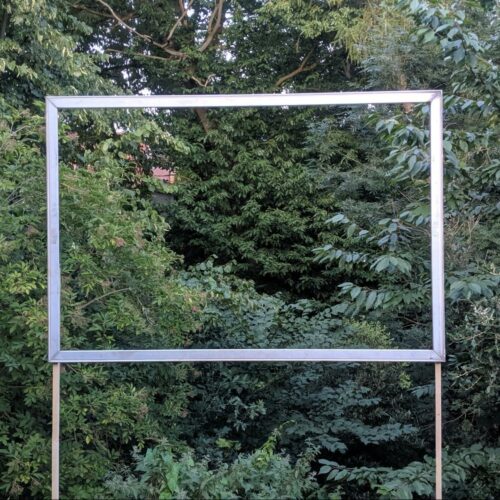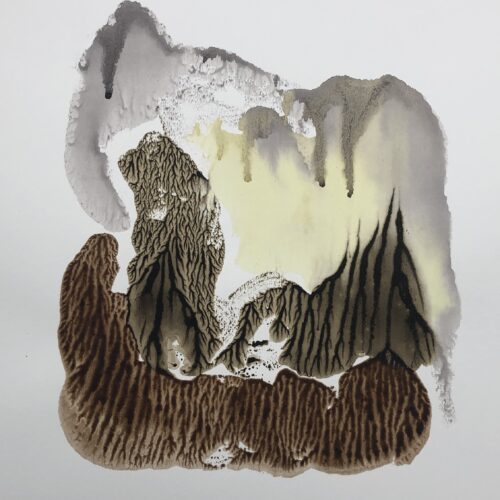
What I learned on a writing retreat
In April, Suzannah Evans’s blog explored the benefits of writing retreats, or residencies, and offered some excellent tips on making the most of them. Her blog also contained links to good resources for finding out more about residency opportunities, for writers of all levels of experience. I’m just back from a three-week writing residency, and in this blog I’m going to reflect on what I learned while I was away. I’ll suggest why those lessons might be useful for anyone wanting to write, whether you’re at home, or sitting at a library desk, in a coffee shop, or living (like I was) in a converted shipping container in rural Scotland (pictured above).
The main reason for going on a self-directed retreat is that you’re setting aside time dedicated to your writing. When I’m working from home, I find it easy to procrastinate, and even when I do want to get on with writing, there’s dinner to be cooked, dishes to be done, and the cat sleeping on my laptop after putting my pen under the sofa. I put off writing until circumstances are more promising. I’m sure anthropologists have identified this phenomenon as classic writer behaviour, but if you want think more about procrastination, how to beat it, and even the benefits of postponing stuff until tomorrow, then start by reading this blog by the historical novelist Emma Darwin.
Retreats create an environment in which there are less distractions. That’s what I loved about my three weeks – I could be selfish with my time, and being away from home meant that less of the standard procrastinations were available. Being in a different place also meant being in a different headspace, so that everyday worries and responsibilities seemed farther away. Many people return from residencies inspired to make more time for writing, and to find a place where they can regularly close the door and get to work. This made me realise that you need to actively seek out good working conditions. These ideal conditions will vary from person to person, but I recommend you take the time to figure out what would make your writing life easier, and do what you can to enable this to become the norm.
The dark side of having space and time to write is feeling under pressure. With all that time to do nothing but write, you have to deliver, don’t you? Nope. This mindset is guaranteed to make you freeze any time you make yourself sit down to write – a retreat simply amplifies the situation. On my residency I learned all over again not to panic or to force things if I wasn’t writing a work of mind-altering genius in a single draft. I took a break if I found myself staring at a blank page. I read lots. I went walks and got devoured by midges. I read some more. Then when I was finally writing, I didn’t look at the word count or worry about daily targets. I allowed myself to put words on the page without worrying whether they made sense: once I had something down, I could play around and see if it could become a poem (this is why freewriting is often recommended by tutors – it chucks your inner critic out the window). A residency gives you time to experiment, fail, and try again, and I think this is a healthy attitude to take home once the residency is over.
When I arrived at my residency, the person who ran the artists’ centre which hosted me recommended that I forget about the plans I had before I came. I wanted to use the time to get started on a book I’d already planned out, but nonetheless I think this is good advice. If you stick too rigidly to a plan, you’ll miss the random bits of inspiration that life throws your way. The view from my window snuck into more than one poem. So did the songs of the birds and the fiendish-looking insect in the pond. Conversations with other residents took my thinking in unexpected directions. I had to forget my plan enough that I was open to these serendipities, and I’m pretty sure the book I started is more interesting as a result.
This lesson applies wherever, and whenever, you’re writing. Planning can be useful, but don’t stop your imagination from wandering. Be open to new ideas sneaking into your work – this is when the really exciting stuff happens.
Desk image © Garry MacKenzie
|
|







This is what I need to hear. I am currently revising my assignment and I am being diverted to other things that inspire me. So thank you for giving me permission (or helping me to give myself permission) to be diverted for a period of time.
I’m glad this was helpful, and good luck with your assignment – it sounds like it’s nearly there!
Sounds fab! Where was the centre where you stayed?
Hi Vicki, it’s a centre called Cove Park, near Helensburgh (http://covepark.org/). It’s open to artists working in a whole range of fields. Off the top of my head there were writers, painters, sculptors, video artists, sound artists, composers, choreographers, furniture makers and jewellers there at the same time as me. And as you’ll see from the website it’s an inspiring setting!
Thankyou brilliant. Shari ng is good @ I liked the simplicity of what you said @ realising we also have a daily life. so while im doing the mu ndane my mind can drift to creative thi nking.